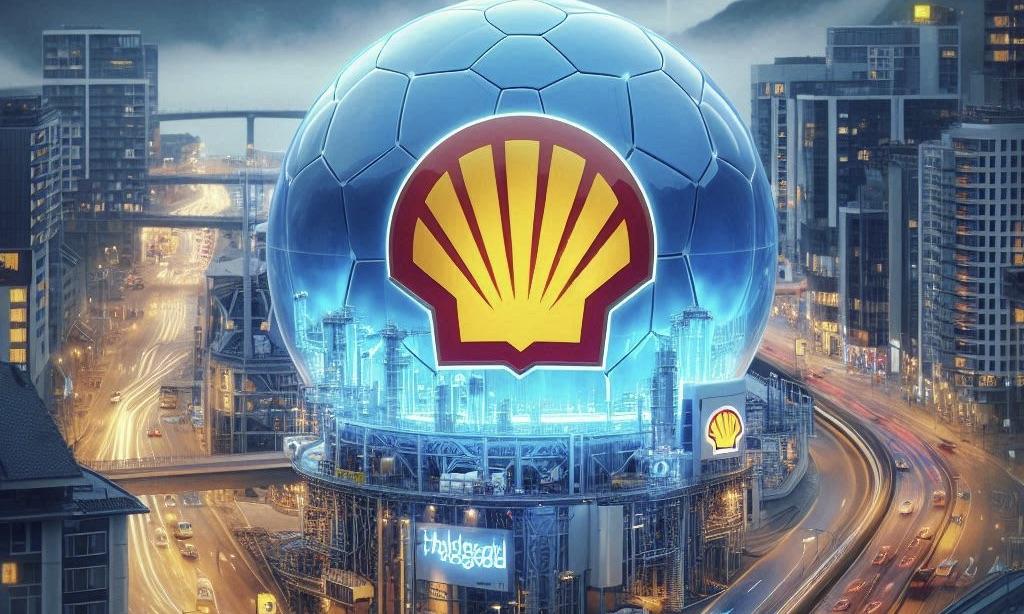Shell has announced the suspension of its blue hydrogen project on Norway's western coast, citing a lack of sufficient market demand. The Aukra Hydrogen Hub, initially set to produce 1,200 metric tons of hydrogen daily by 2030, has been put on hold due to financial concerns.
Shell Puts Aukra Hydrogen Hub on Hold Due to Insufficient Market Demand for Blue Hydrogen
Shell has declared that its intended low-carbon blue hydrogen facility on Norway's western coast is being postponed. A shortage of demand precipitated the fuel giant's decision regarding the proposed hydrogen initiative.
The Aukra Hydrogen Hub, a hydrogen initiative being developed in collaboration with Aker Horizons and CapeOmega, was previously mentioned in a post on S&P Global. By 2030, the facility was anticipated to generate 1,200 metric tons of hydrogen per day, with a capacity of 2.5 GW.
Once operational, the hydrogen facility was anticipated to prevent the emission of 4 million metric tons of CO2 annually. However, Shell's most recent announcement indicates that the company did not perceive "sufficient market demand" for blue hydrogen to "maintain financial support for the Gassco-led study" of a hydrogen pipeline from Norway to Germany.
“We haven’t seen the market for blue hydrogen materialize and decided not to progress the project… We have also chosen to put the Aukra-project on hold for the same reasons,” a spokesperson from Shell noted.
Equinor Joins Shell in Halting Blue Hydrogen Projects Amid High Costs and Low Market Demand
In a recent report by Teslarati, Shell is not the sole organization that has declared a moratorium on developing hydrogen facilities. Equinor recently announced that it had abandoned its intentions to manufacture blue hydrogen in Norway and export it to Germany, as reported by Reuters. The organization justified its decision by attributing it to inadequate demand and exorbitant expenses.
The hydrogen industry, which battery electric vehicle critics have hailed as a preferable alternative to EVs, has been dealt another major setback with Shell's announcement. Blue hydrogen, produced by combining carbon capture and storage with natural gas, has been promoted as a significant advancement in the hydrogen industry.
Despite the hydrogen industry's challenges, BMW and Toyota have persisted in developing forthcoming hydrogen-powered vehicles. These include the BMW iX5 Hydrogen, which is anticipated to be equipped with two hydrogen canisters, which should provide the vehicle with a range of 500 miles.



 Toyota’s Surprise CEO Change Signals Strategic Shift Amid Global Auto Turmoil
Toyota’s Surprise CEO Change Signals Strategic Shift Amid Global Auto Turmoil  Nintendo Shares Slide After Earnings Miss Raises Switch 2 Margin Concerns
Nintendo Shares Slide After Earnings Miss Raises Switch 2 Margin Concerns  Nvidia CEO Jensen Huang Says AI Investment Boom Is Just Beginning as NVDA Shares Surge
Nvidia CEO Jensen Huang Says AI Investment Boom Is Just Beginning as NVDA Shares Surge  Sony Q3 Profit Jumps on Gaming and Image Sensors, Full-Year Outlook Raised
Sony Q3 Profit Jumps on Gaming and Image Sensors, Full-Year Outlook Raised  Global PC Makers Eye Chinese Memory Chip Suppliers Amid Ongoing Supply Crunch
Global PC Makers Eye Chinese Memory Chip Suppliers Amid Ongoing Supply Crunch  Instagram Outage Disrupts Thousands of U.S. Users
Instagram Outage Disrupts Thousands of U.S. Users  OpenAI Expands Enterprise AI Strategy With Major Hiring Push Ahead of New Business Offering
OpenAI Expands Enterprise AI Strategy With Major Hiring Push Ahead of New Business Offering  Anthropic Eyes $350 Billion Valuation as AI Funding and Share Sale Accelerate
Anthropic Eyes $350 Billion Valuation as AI Funding and Share Sale Accelerate  Nvidia Nears $20 Billion OpenAI Investment as AI Funding Race Intensifies
Nvidia Nears $20 Billion OpenAI Investment as AI Funding Race Intensifies  Nvidia, ByteDance, and the U.S.-China AI Chip Standoff Over H200 Exports
Nvidia, ByteDance, and the U.S.-China AI Chip Standoff Over H200 Exports  Prudential Financial Reports Higher Q4 Profit on Strong Underwriting and Investment Gains
Prudential Financial Reports Higher Q4 Profit on Strong Underwriting and Investment Gains  TSMC Eyes 3nm Chip Production in Japan with $17 Billion Kumamoto Investment
TSMC Eyes 3nm Chip Production in Japan with $17 Billion Kumamoto Investment  Tencent Shares Slide After WeChat Restricts YuanBao AI Promotional Links
Tencent Shares Slide After WeChat Restricts YuanBao AI Promotional Links  CK Hutchison Launches Arbitration After Panama Court Revokes Canal Port Licences
CK Hutchison Launches Arbitration After Panama Court Revokes Canal Port Licences  Australian Scandium Project Backed by Richard Friedland Poised to Support U.S. Critical Minerals Stockpile
Australian Scandium Project Backed by Richard Friedland Poised to Support U.S. Critical Minerals Stockpile  SoftBank Shares Slide After Arm Earnings Miss Fuels Tech Stock Sell-Off
SoftBank Shares Slide After Arm Earnings Miss Fuels Tech Stock Sell-Off  AMD Shares Slide Despite Earnings Beat as Cautious Revenue Outlook Weighs on Stock
AMD Shares Slide Despite Earnings Beat as Cautious Revenue Outlook Weighs on Stock 




























